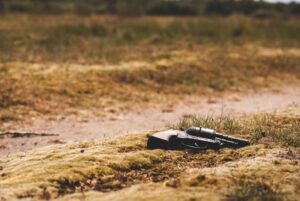
The Prairie State has one of the most sweeping carrying a concealed weapon laws in the United States, mostly in that authorities must issue permits to qualified individuals even if a law enforcement agency files a subjective objection. However, the law is certainly not unlimited.
For many licensees, carrying a concealed weapon is second nature and they may even forget that they are carrying a handgun. If alcohol consumption is second nature as well, even if this consumption is only occasional, the licensee may face serious problems.
Licensing and Renewal
Many people are familiar with the basic qualifications necessary to be licensed to carry a concealed firearm. They include, but are not limited to:
- Be over 21,
- Have a valid FOID card, and
- Undergo sixteen hours of training.
There are some additional qualifications, as well, such as having received fewer than two DUI convictions in the last five years and having no referrals to court-ordered or residential alcohol treatment in the last five years.
Violation of these conditions is not just a licensing or renewal issue because any shortcoming instantly renders the CCW license invalid. So, if licensees voluntarily check themselves into alcohol treatment centers, the state can immediately pull their permits, even if they do not need to renew them for another five years.
The law is a little uncertain on this point, but more than likely, the automatic revocation provision is retroactive. Assume Larry Licensee is pulled over in a traffic stop and the officer sees his gun. When the officer runs a computer check on Larry’s license, he may see that the state revoked it because Larry sought help in a treatment facility, and Larry could be charged with unlawfully carrying a weapon even though he thought he had a valid license.
Prohibited Places
Under section (a)(9), it is illegal to possess a concealed weapon in a restaurant that derives more than 50% of its revenue from alcohol sales. This prohibition extends outside the building, onto the surrounding property, and even to the “parking area under the control of [such] an establishment,” a rather vague phrase that probably includes public parking spaces immediately adjacent to the property.
Owners of covered establishments must post specific signage that says the location is a prohibited CCW location, and if prosecutors file charges, the state must establish that the licensees knowingly carried their weapons into a prohibited location.
Next, if the establishment has a Special Event Retailer’s license, which mostly applies to Oktoberfests, St. Patrick’s Day fairs, and other seasonal events, guns are barred under subsection 11. Curiously, the prohibition applies to the establishment and the surrounding owned property, but not to adjacent parking.
Finally, it is illegal to possess a concealed weapon while under the influence of alcohol or drugs, as that phrase is defined in the Vehicle Code. “Under the influence” means a BAC of at least .08 or impairment to the extent that the person cannot safely drive a motor vehicle, and that second level is probably well below .08. Violating this subsection is a Class A misdemeanor for a first infraction; the other two violations mentioned above are Class B misdemeanors for first infractions.
Rely on Experienced Lawyers
Alcohol and concealed weapons are never a good mix, especially from a legal perspective. For a confidential consultation with an aggressive criminal defense attorney in Schaumburg, contact Glasgow & Olsson. Convenient payment plans are available.
(image courtesy of Jens Lelie)



